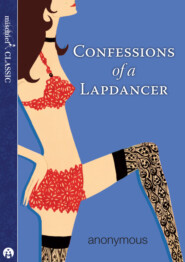По всем вопросам обращайтесь на: info@litportal.ru
(©) 2003-2024.
✖
In God’s Hands: The Spiritual Diaries of Pope St John Paul II
Автор
Год написания книги
2019
Настройки чтения
Размер шрифта
Высота строк
Поля
– Bishop Jerzy Ablewicz (8–14 March 1981) [p. 168]
– Father Stanislas Lyonnet SJ (28 February–6 March 1982) [p. 189]
– Cardinal Joseph Ratzinger (20–26 February 1983) [p. 205]
– Cardinal Alexandre do Nascimento (11–17 March 1984) [p. 221].
The second notebook covers the years 1985–2003 and the retreats led by:
– Archbishop Achille Glorieux (24 February–2 March 1985) [p. 235]
– Father Egidio Viganò SDB (16–22 February 1986) [p. 247]
– Father Peter-Hans Kolvenbach SJ (8–14 March 1987) [p. 265]
– Archbishop James Aloysius Hickey (21–27 February 1988) [p. 283]
– Cardinal Giacomo Biffi (12–18 February 1989) [p. 299]
– Father Georges Cottier OP (4–10 March 1990) [p. 316]
– Archbishop Ersilio Tonini (17–23 February 1991) [p. 333]
– Cardinal Ugo Poletti (8–14 March 1992) [p. 346]
– Bishop Jorge Arturo Agustín Medina Estévez (28 February–6 March 1993) [p. 363]
– Cardinal Giovanni Saldarini (20–26 February 1994) [p. 379]
– Father Tomáš Špidlík SJ (5–11 March 1995) [p. 395]
– Archbishop Christoph Schönborn (25 February–2 March 1996) [p. 400]
– Cardinal Roger Etchegaray (16–22 February 1997) [p. 419]
– Cardinal Ján Chryzostom Korec SJ (1–7 March 1998) [p. 433]
– Bishop André-Joseph Mutien Léonard (21–27 February 1999) [p. 448]
– Archbishop François Xavier Nguyễn Văn Thuận (12–18 March 2000) [p. 454]
– Cardinal Francis Eugene George OMI (4–10 March 2001) [p. 467]
– Cardinal Cláudio Hummes OFM (17–23 February 2002) [p. 475]
– Bishop Angelo Comastri (9–15 March 2003) [p. 479].
The entries in both notebooks were written in Polish. However, the author often introduced phrases in Latin and Italian, especially during the Vatican retreats. The Vatican retreats for the Holy Father and the Roman Curia were always preached in Italian.
2. The schedule of a retreat day
The daily schedule played an important role in the retreats and days of reflection. The order of the retreat that was developed in Kraków, when Bishop Karol Wojtyła began his ministry, included three talks; Lectio spiritualis – spiritual reading; Corona Rosarii – Rosary; Via crucis – the Way of the Cross; Adoratio – Adoration; Matutinum – Matins; Lectio – reading; Sacrum or Officium Eucharisticum – Holy Mass or Eucharist; Vesperae – Vespers; Adoratio Sanctissimi Sacramenti – Adoration of the Blessed Sacrament; Completorium – Compline.
During the retreats, Archbishop Karol Wojtyła followed the Ignatian method. He became familiar with this method in the seminary under the guidance of Fr Stanisław Smoleński, who was later made Auxiliary Bishop of Kraków. The method involved preparing a detailed outline of a topic for reflection and spiritual reading. During his episcopal ministry in Kraków, Archbishop Wojtyła led retreats and days of reflection himself, consulting Bishop Smoleński or Fr Aleksander Fedorowicz on spiritual topics. The latter was the spiritual father of the Lwów Seminary in Kalwaria Zebrzydowska in the 1960s, and then the spiritual director at the Laski Centre, near Warsaw. He would also come to Rome and offer counsel to the Holy Father.
This method of reflection allowed Fr Wojtyła to organise the whole retreat or reflection day according to a characteristic plan. The rhythm of the retreat day was set out by the breviary, which was recited according to the pre-conciliar method, with Matins, Lauds (laudatory prayers), Terce, Sext and Nones. Almost every day included:
– Laudes – Lauds
– Meditatio ante Sacrum – meditation before Holy Mass
– Sacrum – Holy Mass
– Gratarium actio – thanksgiving
– Lectio S. Scripturae – reading the Holy Scriptures
– Meditatio – meditation
– Via crucis – the Way of the Cross
– Vesperae – Vespers
– Adoratio – Adoration
– Rosarium – Rosary
– Lectio spiritualis – spiritual reading
– Meditatio – meditation
– Matutinum anticipatum – anticipated Matins
– Lectio S. Scripturae – reading the Holy Scriptures
– Rosarium – Rosary
– Completa – Compline
– Hora Sancta (Sacra) – Holy Hour
– Lectio – reading.
Bishop Wojtyła remained faithful to this order of reflection days and retreats throughout his life, which is evident in his later notes, in particular the notes from the period when he was pope.
3. The content of the notes
The notes taken during the retreats reflect the quality of Bishop Wojtyła’s and Pope John Paul II’s spirit. They show how spiritually sensitive he was to the problems that the Church in Poland and the Church in the world faced. He took the effort to prepare the topics of reflection days and private retreats by himself. At the retreat that he attended together with the Polish Bishops’ Conference, he used the retreat leader’s thoughts to develop his own reflection on his relationship with God and the ways in which he should fulfil his episcopal duties, which gave meaning to his life.











